- Arenology
- The scientific study of sand.
- Bourne
- A stream or river which tends to dry up in summer.
- Bill

- A narrow promontory
- Bog
- An area of soft, often waterlogged ground consisting of decaying vegetation
- Bore
- A large wave surging up a river estuary, caused by a fast rising tide or tidal surge
- Causeway
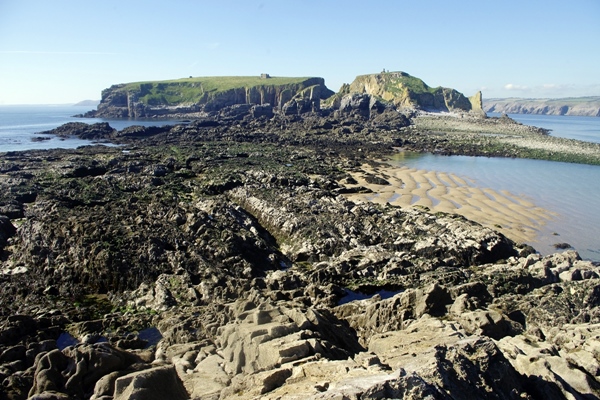 Causeway to St Margarets Island
Causeway to St Margarets Island- A road or tidal crossing, above the sea or other wet area
- Chart Datum
- Often seen on Tide Tables. A level from which water depths and tide heights are measured. Usually the lowest possible calculated tide height, so that tide tables will never show a negative height
- Doline
- A depression in the ground, often funnel-shaped, caused by the ground collapsing into a limestone cave
- Dumping Waves
- Also known as Plunging waves, these occur when the face of the wave develops a concave shape, and the crest falls - often with considerable force - onto the shore. They occur mostly on beaches with a steep gradient
- Creek
-
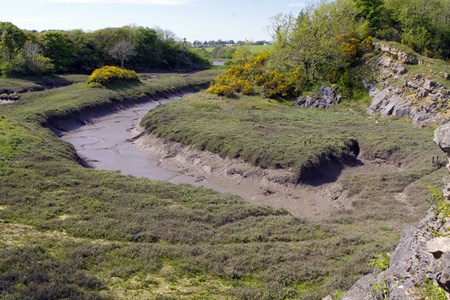
- A narrow inlet, especially one draining a salt-marsh
- Dune Slack
-
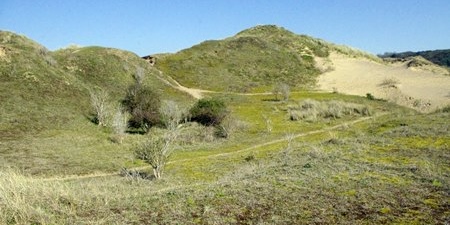
- The low-lying depressions in sand dunes, where vegetation usually flourishes
- Ebb Tide
- A falling tide - (the 'drop' in surfing terms)
- Estuary
-
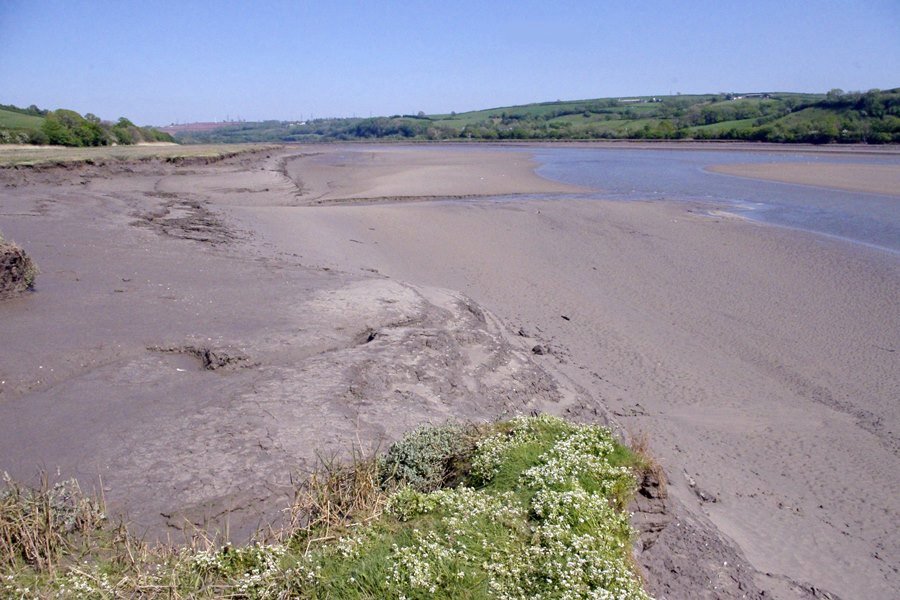 Towy estuary
Towy estuary
- The tidal section of a river
- Fathom
- Unit of water depth - equal to 6 feet
- Flood Tide
- A rising tide - (the 'push' in surfing terms)
- Foreshore
- The area of the beach between high and low tide
- Isthmus
- A narrow strip of land connecting two larger areas of land
- Lagoon
- An area of sea water, separated from the sea by rocks or sand
- Land Breeze
- A light wind blowing from land to sea, where the air over the sea is warmer than that over the land and rises, being replaced by cooler air from the land. Usually occuring after a hot day.
- Living rock
- Rock which still forms part of the cliffs or bedrock
- Localism
- A dislike of people who aren't local - particularly by surfers
- Marsh
- An area of wet or muddy low-lying ground frequently flooded
- Neap Tides
- Tides which occur around the time of a quarter moon. These have the lowest tidal range
- Offshore
- Winds blowing from the land to the sea
- Onshore
- Winds blowing from the sea to the land
- Perigean Spring Tide
- An exceptionally high (and low) Spring Tide which occurs a few times a year when the moon's elliptical orbit brings it closest to the earth
- Pill
-
 Pennard Pill - Gower
Pennard Pill - Gower
- A small pool, river or ditch running into the sea
- Promontory
- A point of land (usually with some height) sticking out into the sea
- Psammophilic (adj)
-
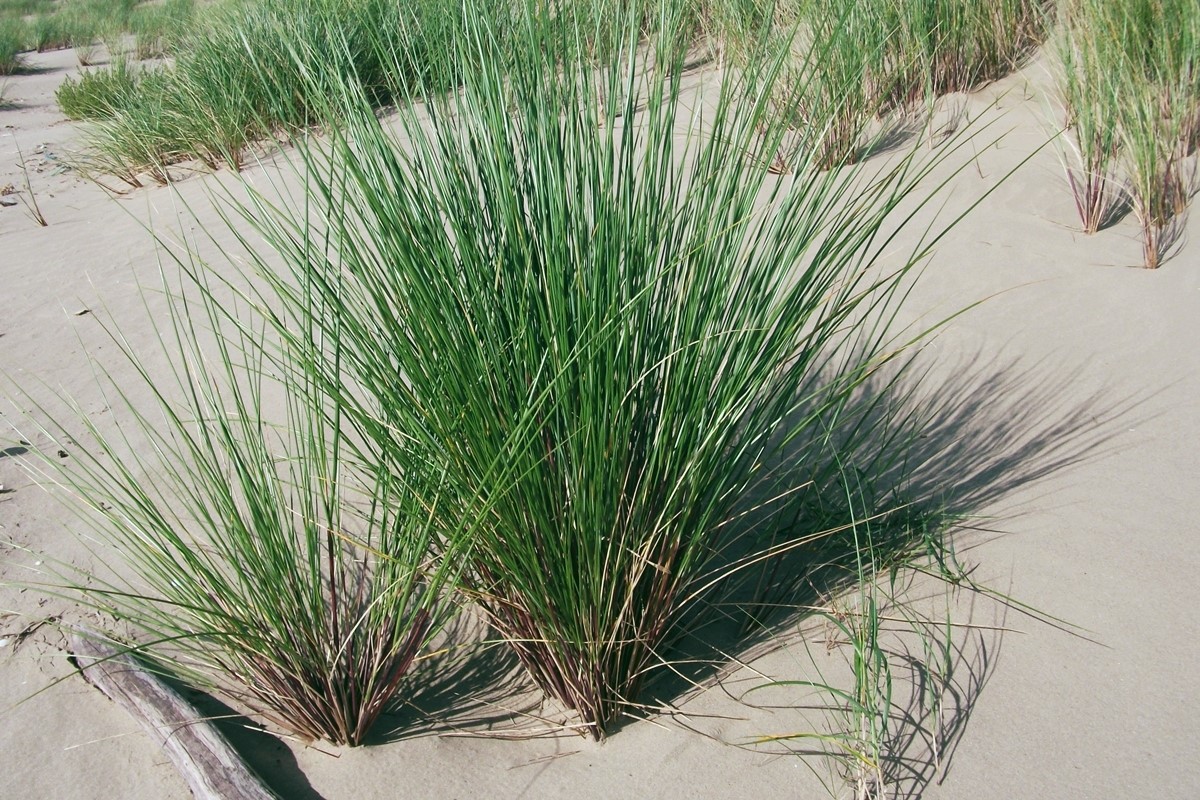 Marram grass
Marram grass
- (of plants or animals) thriving in a sandy environment
- Purl (verb)
- To flow with a soft rippling sound - as of streams across a beach
- Race
- A strong tidal current flowing through a narrow channel e.g. between the mainland and Ramsey or Bardsey islands
- Rails
- The sides of a surfboard
- Reef
- An area of rocks or sand, usually just below the surface of the sea.
- Reef Break
- (Surfing) Waves that break over a reef
- Ria
-
 Solva Harbour - An example of a ria
Solva Harbour - An example of a ria - A glaciated river valley, open to the sea
- Rip current
 Rip currents at Monkstone
Rip currents at Monkstone- A body of water flowing out to sea
- Road
- A sheltered area of water where boats can safely lie at anchor
- Runnel
- A small stream or channel, especially one which drains a tidal pool
- Salebrous (adj)
- Rough, rugged, uneven
- Saltmarsh
-
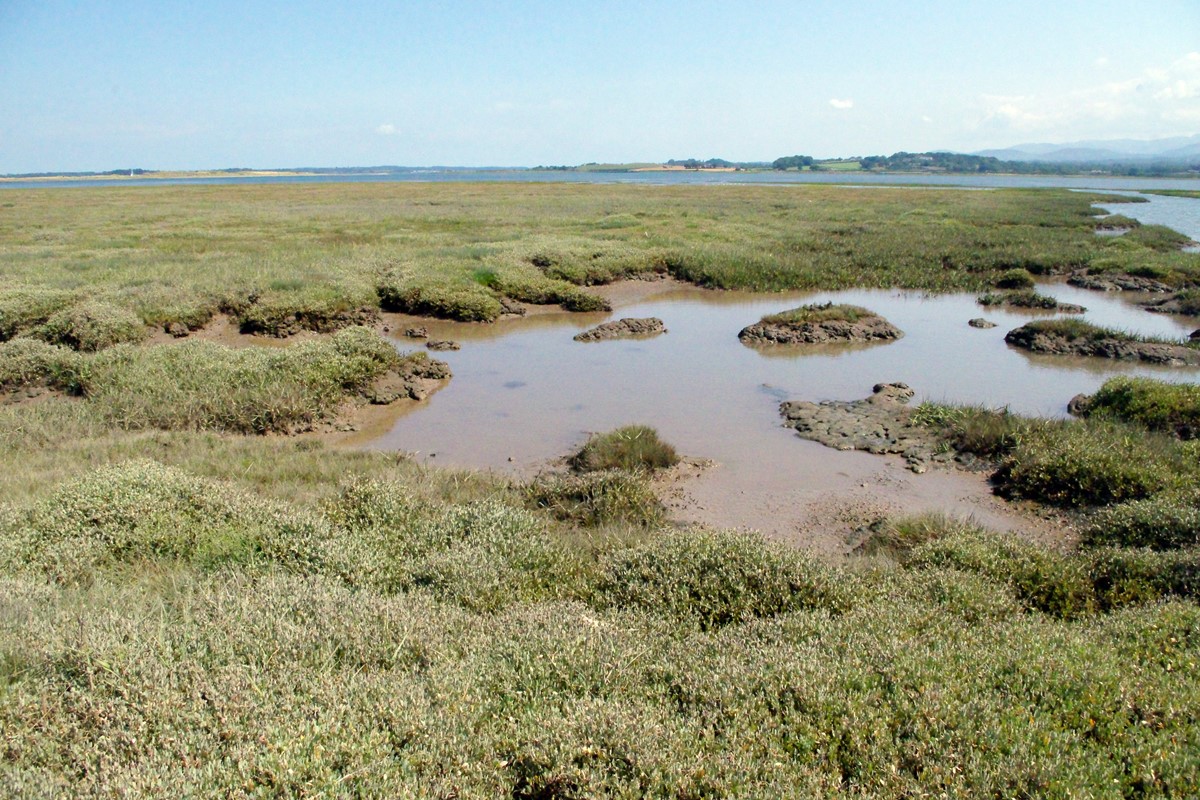
- A marshy area - usually on river estuaries - often flooded by the sea
- Sand Bar
- A ridge of sand projecting out into the sea usually created by river currents, and a dangerous place to be on an incoming tide
- Scar
- A steep or precipitous cliff
- Sea Breeze
- A light wind blowing in off the sea, caused by a temperature differential where the land is warmer than the sea, causing air to rise, and be replaced by cooler air from the sea. Usually occurs on hot days.
- Sea Glass
- Small pieces of glass, worn down and rounded by the sea
- Sea Mist
-
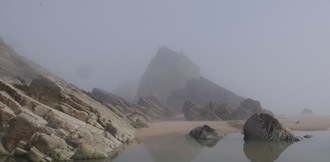
- Moisture laden air being carried in on a sea breeze.
- Skerry
- A small, rocky islet
- Slack Water
- The state of the tide around high or low tide, when there is little tidal movement
- Slough
- A bog or marsh, usually connecting with a river or the sea
- Sound
- A narrow channel of water connecting two larger areas or forming an inlet; the channel between an island and the mainland
- Spilling waves
-

- Waves in which the broken water gently tumbles down the face of the wave. These occur mostly on beaches with little gradient
- Spit
- A bank of sand or shingle, jutting out to sea
- Spring Tides
- Tides which occur around the time of a full or new moon. These have the largest tidal range
- Spume
- The white foam seen on waves during windy or stormy weather
- SSSI
- Site of Special Scientific Interest
- Strait
- A narrow channel between two large areas of land
- Strand
- The land bordering a sea or lake
- Strandline
- The line of sea-borne debris on a beach just above the high water mark
- Swatch
- An area of shallow water which remains covered at low tide
- Tombolo
-
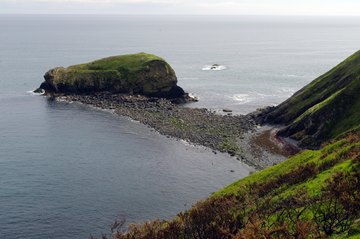
- A spit of sand or shingle between an island and the mainland
- Wave-cut Platform
- A region of relatively flat rocks at the base of the cliffs, caused by sea erosion
- Zawn
- A steep-sided, narrow inlet in the cliffs
